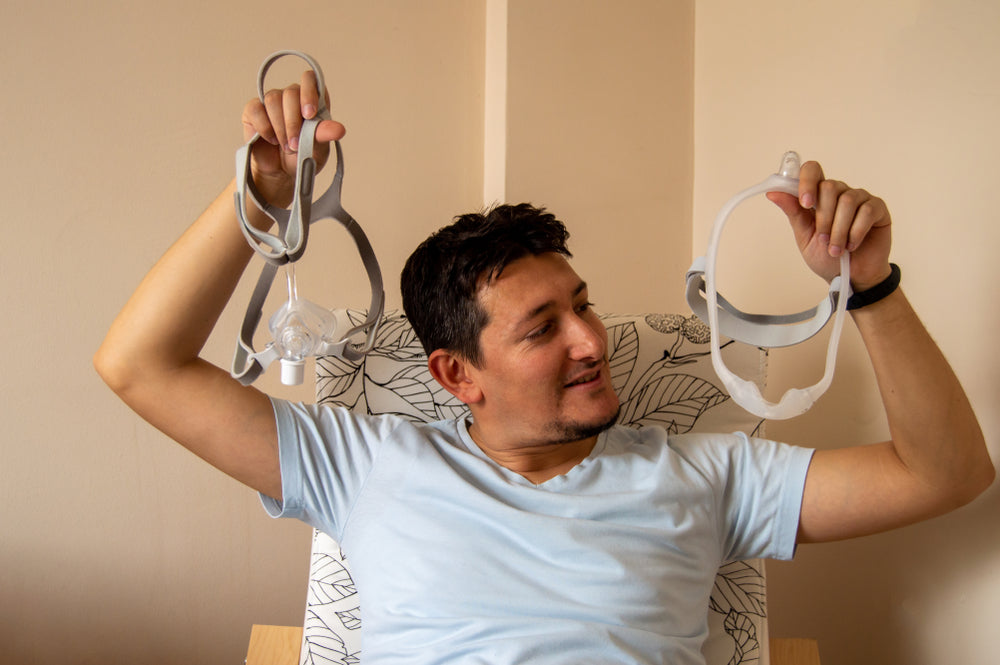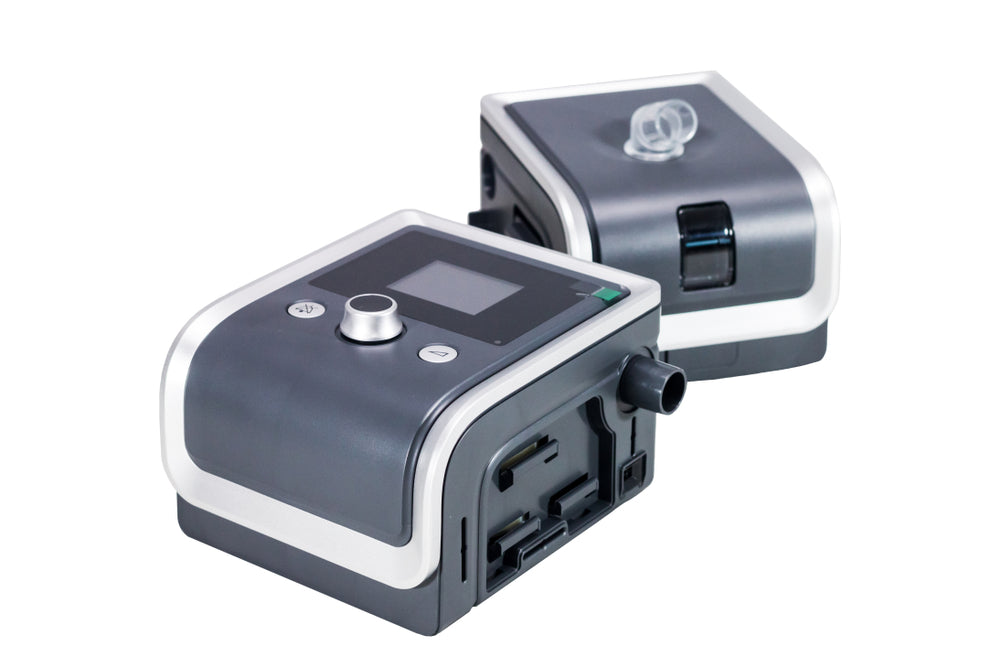Does using your CPAP machine make you feel like you can't breathe?
Continuous positive airway pressure (CPAP) stabilises the air pressure in your lungs by preventing your upper airway from closing while you sleep. CPAP is the most common and effective treatment for sleep apnea.
Feeling like you cannot breathe when using a CPAP machine? Don't worry – you aren't the only one; it's a common problem amongst CPAP users, and the good thing is, there are ways to avoid it. Many people with obstructive sleep apnea have been in the same position as you. The importance of getting a correctly fitted, correctly calibrated machine and mask cannot be understated. Our experience in the industry has shown that many people who tried CPAP and hated it have done so with a poorly fitting mask. But, eventually, they tried it with a suitable mask and loved it.
Throughout this article, we will discuss why CPAP therapy can occasionally cause the feeling of struggling to breathe and some solutions to help you sleep comfortably. A CPAP machine is one of the most effective ways to treat and reduce sleep apnea symptoms, but constant use of the machine on a nightly basis can cause some side effects, one of those being the feeling of struggling to breathe. In addition, as with most lifestyle changes, your body will need time to adjust to a CPAP machine. There are, however, methods to get used to your CPAP machine and return to getting a good night's sleep.
So, where does the feeling come from?
Perceived shortness of breath
Some users of CPAP therapy experience shortness of breath, but this is typically a sensory experience. Since a functioning CPAP machine never reduces the air the user may inhale, it is usually the sensation of not getting enough air that causes users distress. Wearing a CPAP mask can also cause you to feel claustrophobic because the mask fits snugly around your nose, adding to the sensory feeling. A smaller mask will likely be more comfortable if you are prone to claustrophobia.
General discomfort
Sleeping with a CPAP mask can sometimes feel uncomfortable – part of this is the adaptation period of getting used to the machine. In addition, the mask can feel constricting and bulky, and the hose can make it difficult to sleep in positions other than lying on your back. Finally, exhaling can be uncomfortable if the sleep apnea equipment is too high-pressure.
Solutions
Mask fit
Leakage can occur if your CPAP mask is not fitted correctly or not properly cleaned. In the event of a leak, there is a high probability that your CPAP machine cannot deliver its intended pressure. For this reason, it's essential that your CPAP mask is well-fitted to your face to ensure that all the air flowing through the machine is effectively delivered. An ill-fitting mask will cause problems for your overall treatment.

Mask options
There are multiple options for the mask component of your CPAP machine. Some users find it more comfortable to wear a nasal pillow mask, nasal mask or full face mask. If you are experiencing irritation with your current set-up, experimenting with another option could help to alleviate this discomfort. The more coverage on your mask, for example, the better the seal against leakage and the better the therapy. You may also need a larger mask if you have facial hair. It is essential to consider the amount of air pressure you need when choosing a mask. Masks with nasal pillows, for instance, may not work with high air pressures.
Adjust pressure
You may require a new pressure setting for your CPAP machine when you change your lifestyle, like weight gain or loss or giving up cigarettes or alcohol. Adjusting your machine to a lower pressure that better suits your current lifestyle can dramatically change the comfort of treatment.
Try a different machine.
Although CPAP is the most popular machine available for sleep apnea, there are three types of PAP therapy (positive airway pressure). There are three types of PAP machines; CPAP, BiPAP and APAP. You can read about the differences here.

Come and see the experts!
If you need help to ensure you are getting the right product for your needs, come in and see us in-store, and we can run through everything face-to-face. This way, we can ensure that your machine will fit you comfortably for years to come.
Obstructive sleep apnea is a serious condition that, with the correct treatment in place, is highly treatable. Implementing the right treatment plan can lessen symptoms of sleep apnea as well as prevent serious health concerns linked to sleep apnea in the future. So keep up with the treatment and find a comfortable solution that works for you. Booking an appointment to come in-store means we will organise for you to speak with a sleep expert, ensuring you are in the best hands.
